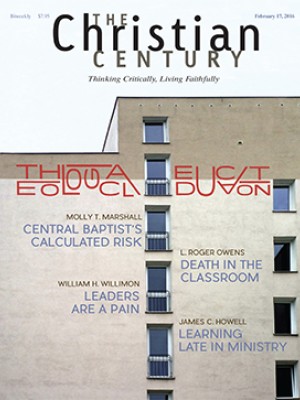Belgian archbishop says Catholic hospitals can deny euthanasia
The new head of the Roman Catholic Church in Belgium is demanding that faith-run hospitals and nursing homes have the right to refuse euthanasia to patients.
A 2002 law decriminalized euthanasia for terminally ill adults, and it has the support of a large majority of the public and politicians. But opposition in this historically Catholic country has grown as lawmakers extended the practice to include terminally ill children and people with severe psychological problems.
Jozef De Kesel, consecrated as archbishop of Mechelen-Brussels and primate of Belgium in December, spoke about euthanasia in a recent interview with the daily Het Belang van Limburg.
“I think that we have the right, on an institutional level, to decide not to do it,” De Kesel said. “I am thinking, for example, of our hospitals.”
The statement surprised many because De Kesel’s reputation as a moderate made him a popular choice when the pope appointed him to succeed his archconservative predecessor.
“We were happy when he arrived, he seemed like an open man and I had great hopes for him,” said Jacqueline Herremans, head of the Association for the Right to Die with Dignity. “I didn’t expect comments like this.”
The debate over De Kesel’s comments has brought to light that, in the first such case, a Catholic nursing home outside Brussels has been sued for refusing to euthanize a 74-year-old patient. A court is due to rule on the case in April.
Several politicians and right-to-die advocates have said that religious health care centers cannot opt out of providing a legal medical service because they are financed by taxpayers through state subsidies they receive.
Senate president Christine Defraigne, from the liberal Reformist Movement, said the euthanasia law was clear. “Freedom of conscience does not apply to hospitals,” she said.
Defending the Catholic position, lawyer Fernand Keuleneer—a former member of the federal euthanasia commission that reviews death requests—said the law foresaw a conscience clause for doctors but did not mention institutions. “The law does not create . . . a fundamental right to euthanasia,” he said.
Read our latest issue or browse back issues.
Public acceptance of the law has grown over the years, especially in Flanders, the Dutch-speaking northern region, where 80 percent of medically assisted deaths take place. The number of deaths rose from 235 in 2003 to 953 by 2010, and then jumped to 1,432 in 2012 and 1,924 in 2014.
As criteria for accepting requests for euthanasia have loosened, unusual cases have appeared.
In 2013, identical 45-year-old twin brothers got lethal injections after they began to go blind and told doctors they could not bear not seeing each other. That same year, a 44-year-old man received assistance in dying because he experienced “unbearable psychological suffering” after several botched operations in a gender transition.
A serial murderer and rapist was granted permission for medically assisted death in 2014 due to the mental anguish he suffered since he had no prospect of release because he could not overcome his violent sexual impulses. This decision was reversed a week before he was to die, possibly because some 15 other convicts also applied for euthanasia after his request was granted.
An opinion poll in 2013 on allowing euthanasia for children showed that 74 percent of those surveyed supported the reform. The Parliament voted in 2014 to allow terminally ill children with parental consent to opt to die.
In Belgium’s mixed private and public health care system, private Catholic institutions provide about three-quarters of the hospital beds in Flanders and 42 percent in Wallonia, French-speaking south Belgium. They also run roughly a third of the nursing homes in the country.
The Catholic hospitals, which receive state subsidies, officially offer only palliative care for end-of-life patients, but not all of them have an outright ban on euthanasia in their guidelines. —Religion News Service
This article was edited on February 2, 2016.






